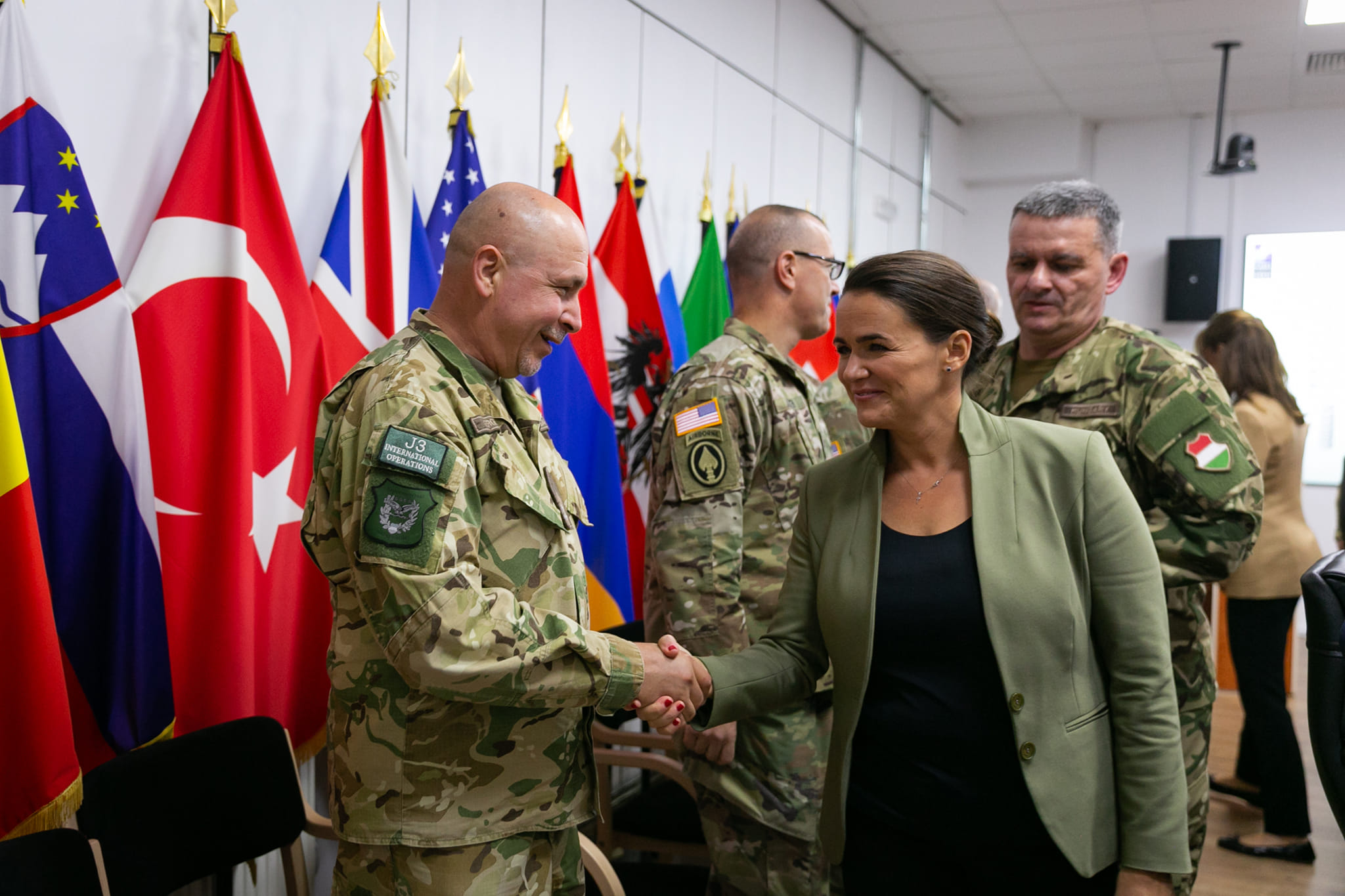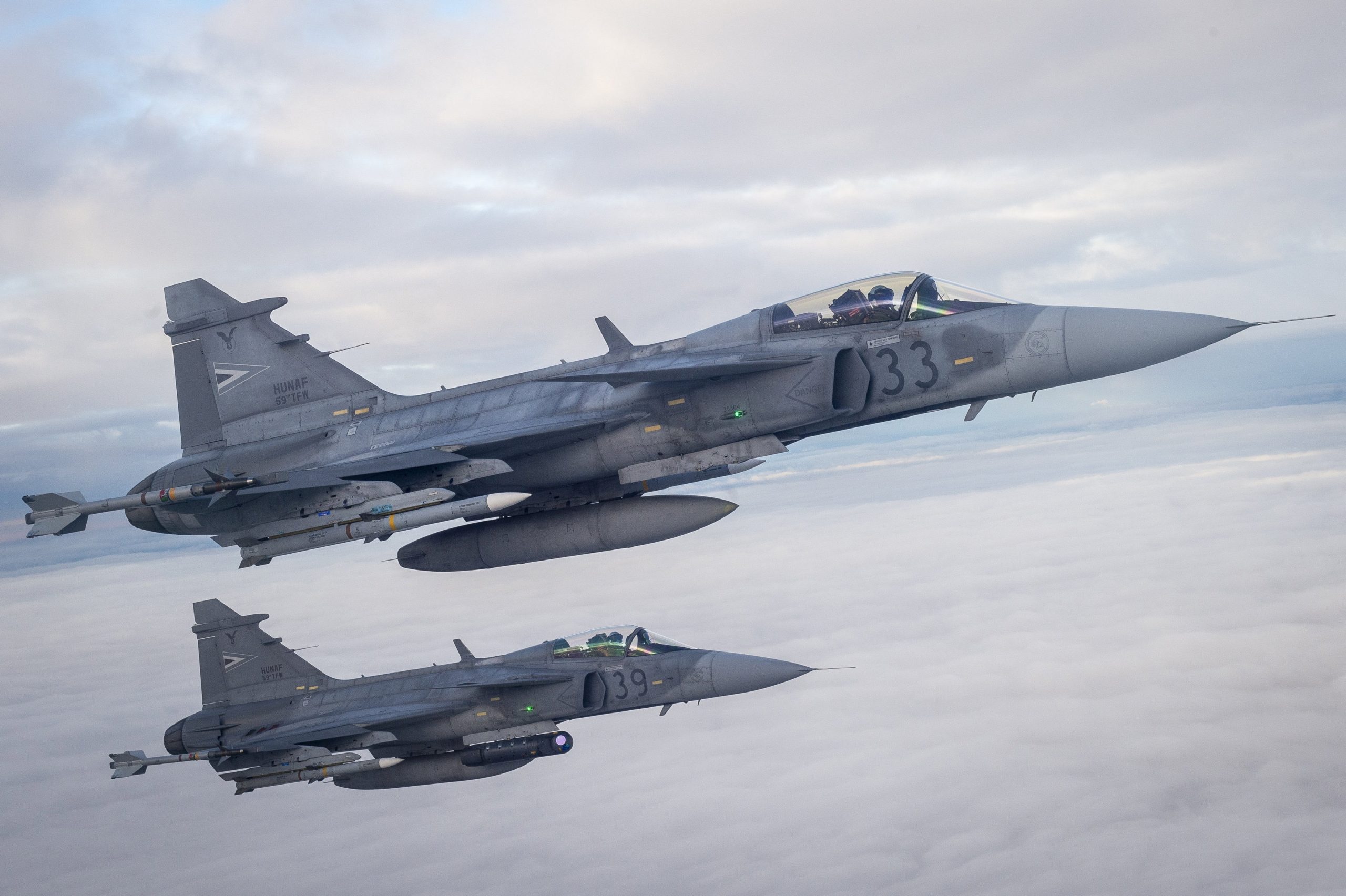
Peace and security in the Western Balkans are necessary for peace and stability in Europe, stressed Katalin Novák.Continue reading

Hungarian Gripen aircraft patrolling the airspace of the Baltic countries under NATO’s Baltic Air Policing (BAP) mission have been alerted six times in the past two months due to unidentified Russian aircraft, the Hungarian commander of the BAP said at a briefing at the airbase in Siauliai, Lithuania, which is home to the Hungarian aircraft, MTI reported.
Attila Ványik said that since the beginning of the mission, the Hungarian fighters have carried out 36 training alerts and other training missions. The participants of the BAP mission protect the airspace of the Baltic States in four monthly rotations, and for the first time is led by Hungarians.
This is the third time that the Hungarian Air Force has been deployed in the Baltic States since 2015 and 2019.
With four Gripen fighter jets and 77 soldiers, the Hungarian contingent is performing a so-called Quick Reaction Alert mission with the support of the Czech Air Force.
This means that in the event of an unidentified aircraft being detected, the fighter pair must take to the air in combat-ready condition within 15 minutes.
Ványik said that so far, all alerts have been triggered by Russian aircraft, fighters, military transport aircraft, and reconnaissance aircraft flying unidentified in international airspace near the Baltic. This means that they had no flight plan, no radio contact with air traffic controllers, or were flying with their airborne beacons switched off, which requires physical identification, which is done by Gripen aircraft.
During a press visit to the base, Romulusz Ruszin-Szendi, commander of the Hungarian Defense Forces, stressed that tensions in the region had increased considerably since the outbreak of the Russian-Ukrainian war, and that Hungarian soldiers had to be able to cope with such circumstances.
He stressed that Hungary and the Hungarian Defense Forces not only talk about the importance of cooperation between NATO member states, but also actively participate in the implementation of collective defense and deterrence.
They are not only in Lithuania, but also in Kosovo, as part of KFOR, where a Hungarian general is leading the operation, he stated.
He said that the Hungarian soldiers had gained a great deal of recognition for themselves in the course of the mission and were gaining international experience that could not be matched in any other circumstances.
Featured photo via MTI/Ujvári Sándor